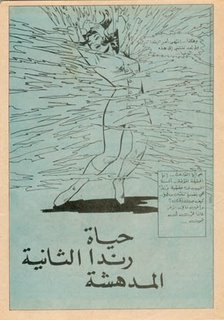Writers & Influence
Youssef Abu Raya's novel Laylat 'Urs (Wedding Night) is set in a rural town, a microcosm of Egypt, that begins as a village and eventually becomes a large, modern city. It is the site of the confluence of many stories from Arab countries and beyond. The events take place sometime between the defeat of 1967 and the October War of 1973. The novel contains echoes of Gabriel Garcia Marquez's Chronicle of a Death Foretold, certainly in the manner in which an entire town colludes to rid itself of a symbol of sexual vitality, though Raya's town, in the end, is perhaps closer to that in the Steinbeck story "Johnny Bear". Houda, the deaf and dumb protagonist of Laylat 'Urs, resembles Steinbeck's eponymous hero: both excel in expressing themselves through gestures. Houda may be deaf and dumb, but he clutches all the secrets of the town to his bosom. Like Johnny Bear, and his Egyptian incarnation in Youssef Idris's "Al-Sheikh Sheikha", it is the fear that Houda will upset the secret symbols of decorum that leads to the conspiracy against him.I'm intrigued by what and who inspires novels, and right now am interested in which writers influence Arabs and Arab Americans . Abu Raya's book seems to be inspired by Steinbeck and Marquez, and Mahfouz's Author Notes have always said he was influenced by Proust, Zola, Flaubert, and countless other French/Western writers.
This week, many people have asked me about influences of Arab American writers. My friend Hayan Charara reported that, in an informal poll, almost every single Arab American writer cited non-Arab influences. It makes sense to me: the Arab novel is relatively new. The earliest is Heikal's Zeinab, which was written in 1914, and even then, it was written in Paris.
In sharp contrast to the Arabic novel is Arabic poetry. Arabic poetry is too, too rich and complex to consdence into a blog post, or even into one book. Arab poets are, in my experience, almost always influenced by other Arab poets.
And it makes sense: poets work primarily with language, especially in Arabic, where almost all poems rhyme (yet, there are many free verse poets out there). So, for Arab American writers who write in English, it follows that they would be influenced by English-language poems.
So: are Arab and Arab-American writers mainly influenced by Western writers, or are they also influenced by place, time, poetry, folktales, and a rich past that can not necessarily be pinned down to novels? And when they write novels which echo and resemble Western writers' works, do they not-- like all other writers, Arab or not-- "make it new"?






